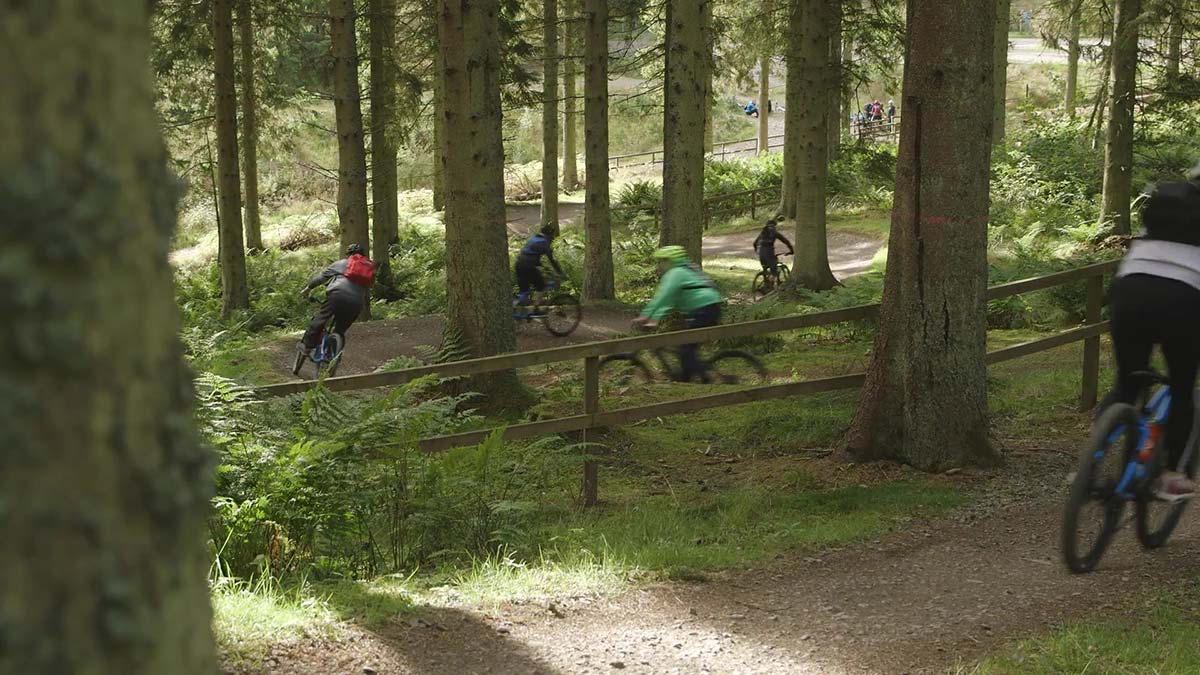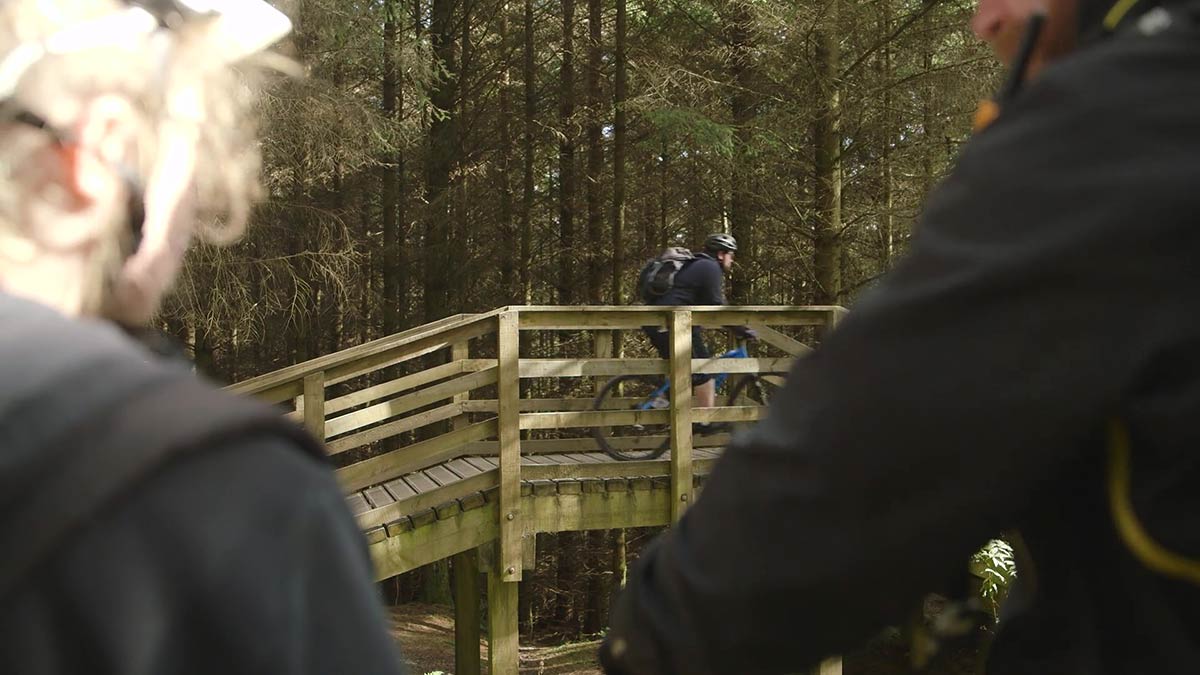We all know it. Any of us lucky enough to have experienced the tranquility and thrills of mountain biking know full well the wonders it can do for mood. So now a team has been looking into quantifying mountain biking’s benefits on our mental health, and how to harness its potential in the future.
We don’t know exactly what it is about mountain biking that lifts us; maybe it is the freedom to explore the countryside away from the hustle and bustle of the daily grind, maybe it is the adrenaline rush we get from shredding down the off-piste on the edge of our grip, the post-exercise endorphins, or maybe it is just the simple act of moving along on two wheels, that feeling of dynamic equilibrium.
Mountain Biking for Mental Health
video by Dominic Simmons Films
We might recount anecdote after anecdote of personal stories, or stories of friends who have used mountain biking to lift them out of low mood and depression, but directly measuring the impact of mountain biking on mental health, quantitatively or qualitatively, is a whole other kettle of fish. A team in Scotland of mental health professionals, a sports psychologist & mountain bike leader volunteers (including myself) have set out to do just that.
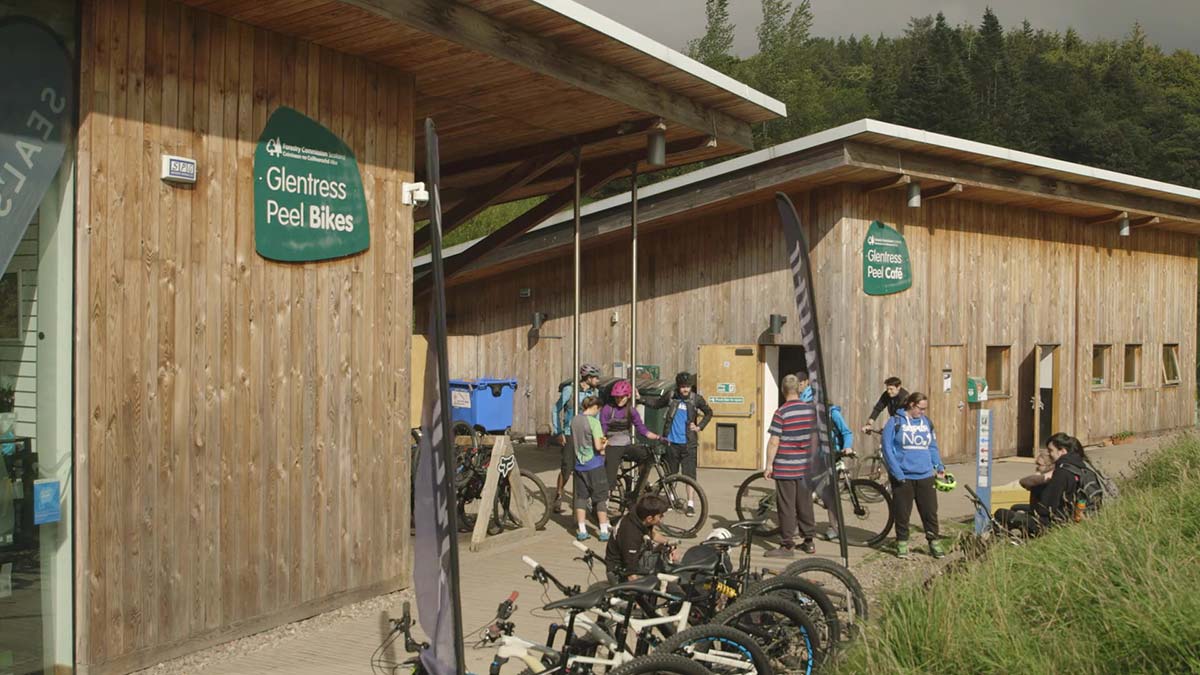
The pilot study ran for 6 weeks from August-September 2018, and saw 10 participants take to the green and blue trails of Glentress trail centre in the Tweed Valley. Though all the participants could ride a bike, most had never experienced the joys of off-roading. We started small with short skills-based sessions on the flat, before heading off into the forest and onto proper singletrack.
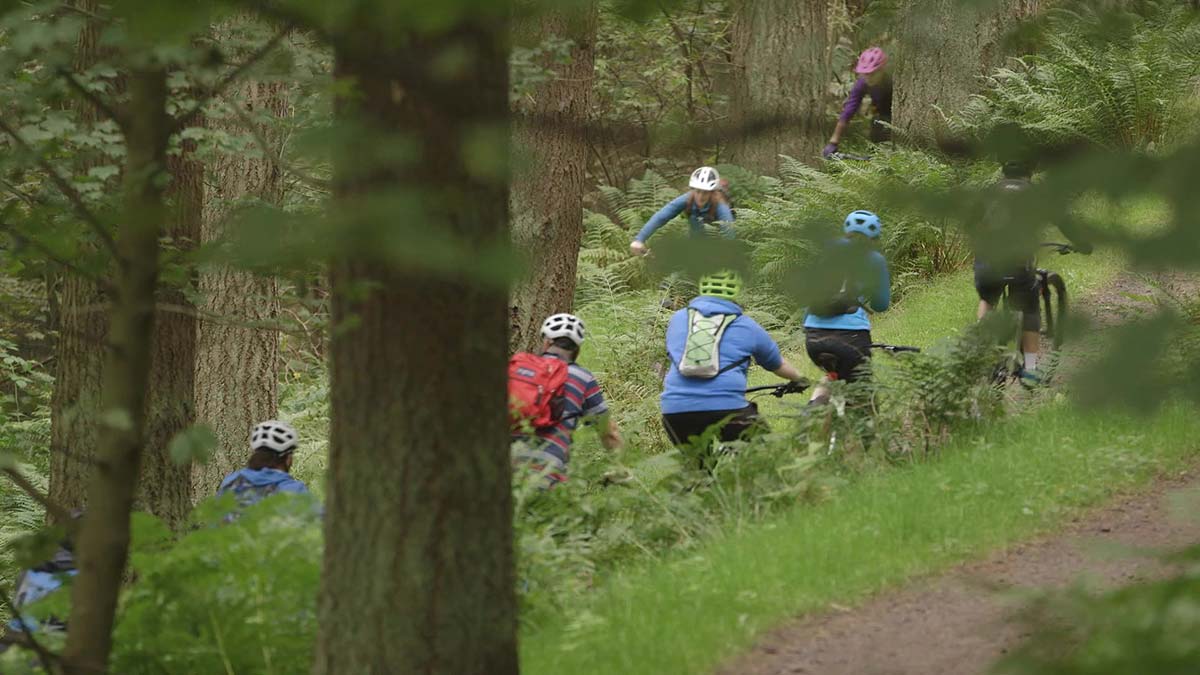
Weekly 2-hour sessions over 6 weeks saw the participants’ confidence on the bike build tremendously. By the end of the programme participants were tackling log skinnies, bridges, and small drops offs. From my perspective as a mountain bike leader, it was very rewarding to see the progression and the participants’ enthusiasm for mountain biking build over the course of the project.
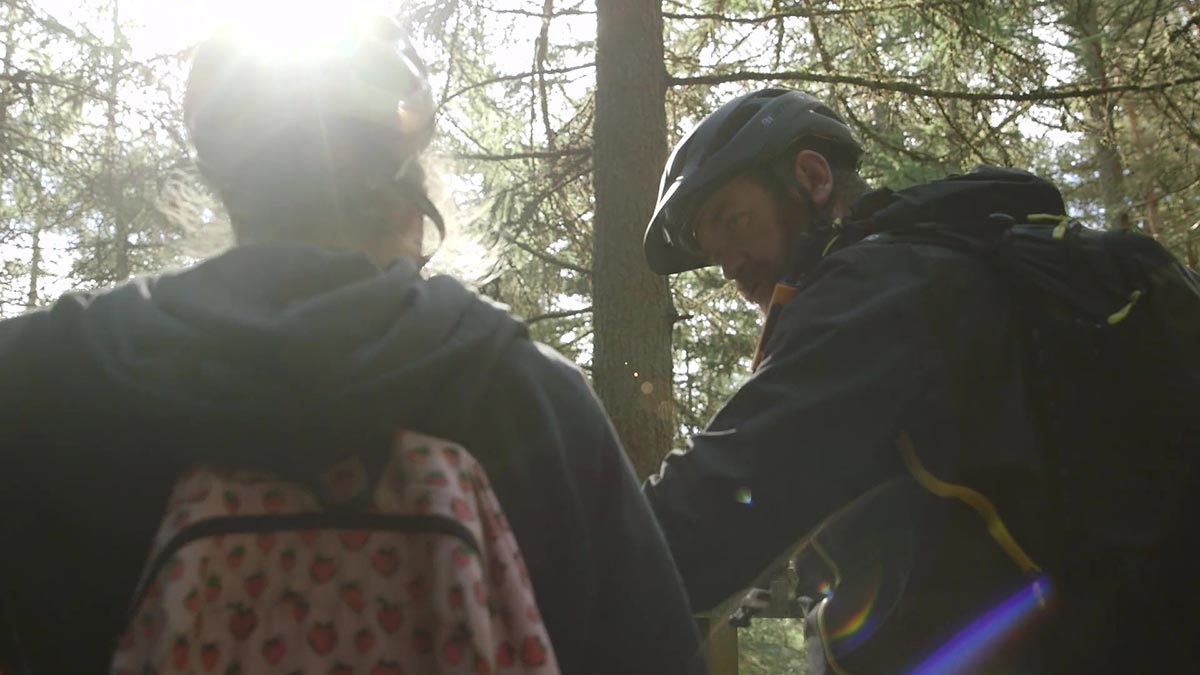
Heading up the team is Graeme McLean, project manager at Developing Mountain Biking Scotland (DMBinS), the Scottish Cycling hosted project responsible for overseeing delivery of the national strategic framework for mountain biking in Scotland. One of the key targets in that strategic framework is to build participation in mountain biking across all demographics. Graeme said, “We think there is a real opportunity to build that participation base working with a range of different partnerships. We were approached by NHS Borders and Scottish Borders Council to run a project with people who have been suffering from a period of mental ill-health. We are really keen to see if this can actually make a difference, and we’re looking forward to the study results.”
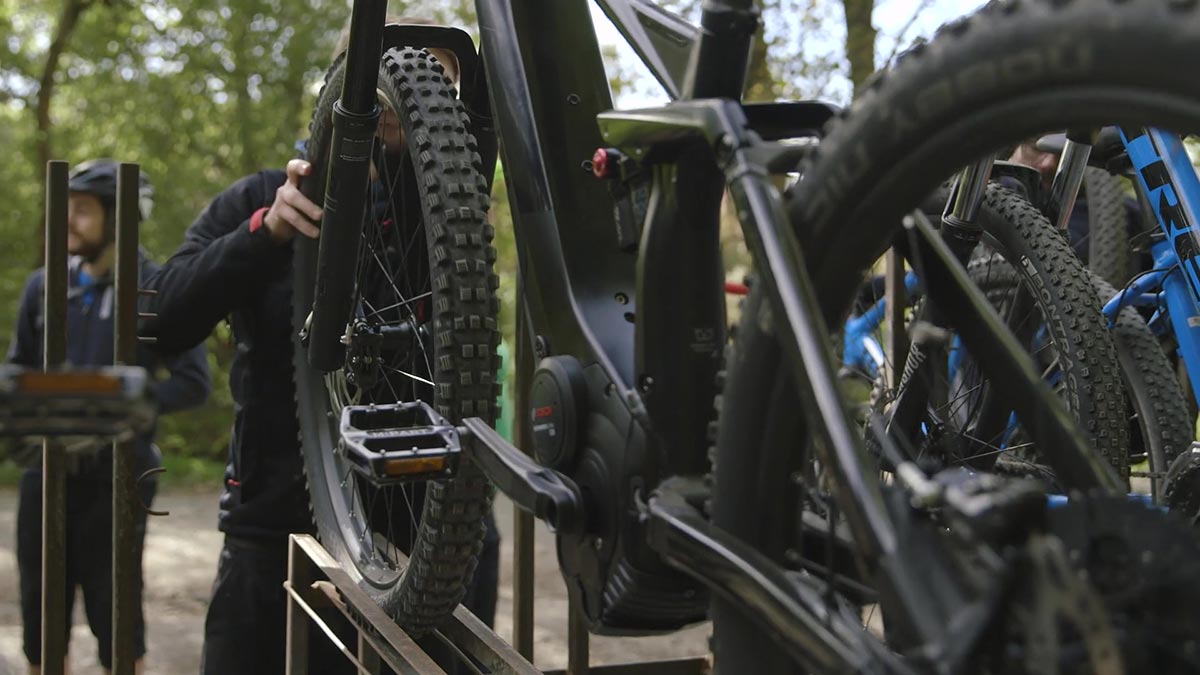
Occupational therapist specialising in mental health, Niamh Allum, was the driving force behind the project. Niamh had been working with the participants in a more traditional clinical setting on self-management skills to improve their physical and mental health. Niamh saw the opportunity within mountain biking to allow patients to practice these self-management skills in a more complex social setting.

Mental Health support workers from Gala Resource Centre were also on hand throughout the sessions to reinforce individual strategies that each person could use to manage their own challenges and difficulties.
Here are just some of the comments provided by the participants throughout the project:
“It’s just the feeling of the wind in your hair.”
“I woke up this morning feeling rubbish, now – after mountain biking – I am feeling good about myself and ready for the week.”
“I had a crap weekend, but I am back smiling now.”
“You don’t think it’s therapy – but it really is – and it really works for me.”
Tony Westbury, lecturer in Sports Psychology at Edinburgh Napier University, will be evaluating outcomes of the pilot study. He said, “We think this a fantastic programme, and through our observations we can see that the participants really enjoyed mountain biking and the experience provided by DMBinS. We will be studying the impact of the programme from the participants’ perspective and also collecting the learnings from the leaders and occupational therapists involved into how the programme could be developed, improved, and escalated into the future.”
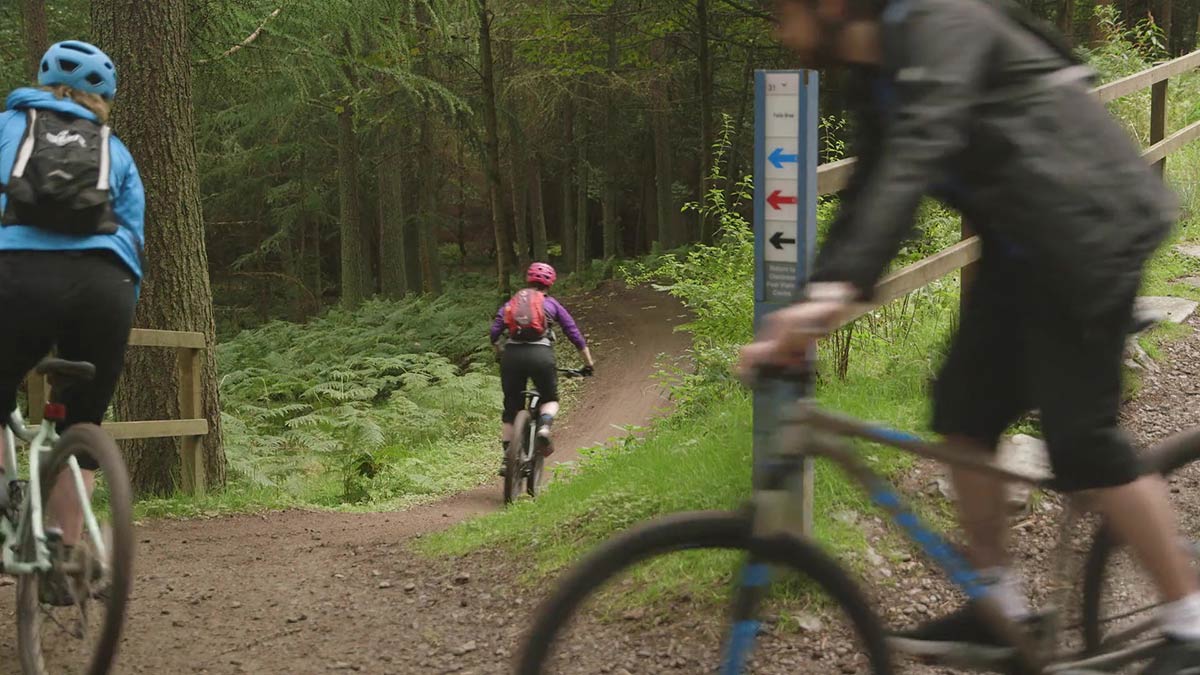
Tony, Niamh, and the team at Developing Mountain Biking in Scotland are now looking at how programmes like this one can be improved to provide maximum benefit for participants, and how they can be rolled out on a larger scale.
